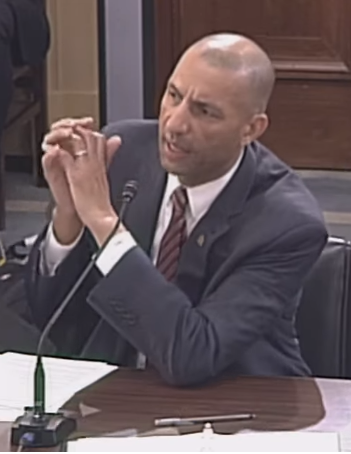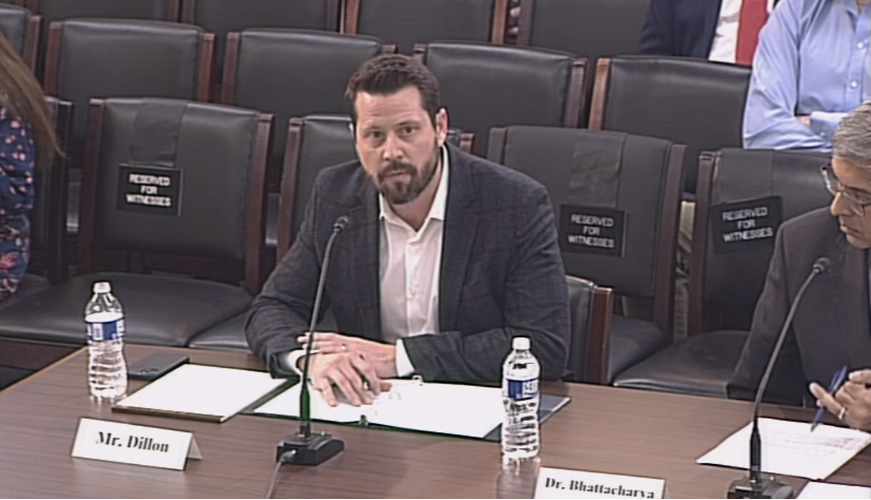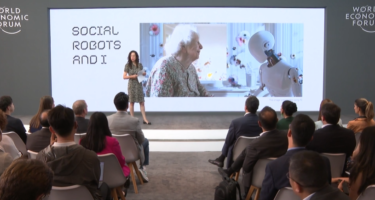The Babylon Bee CEO Seth Dillon tells congress that online censorship guards the narrative at the expense of the truth.
Providing expert witness testimony today before the House Energy and Commerce Subcommittee on Communications and Technology during a hearing called “Preserving Free Speech and Reining in Big Tech Censorship,” Dillon testified that speech had become so restricted on social media platforms that comedy itself was becoming off-limits.
“Our speech is restricted to the point where we can’t even joke about the insane ideas that are being imposed on us from the top down” — Seth Dillon
“We learned the hard way that censorship guards the narrative, not the truth. In fact, it guards the narrative at the expense of the truth,” said Dillon.
“The comedian’s job is to poke holes in the popular narrative. If the popular narrative is off-limits, then comedy itself is off-limits.
“And that’s basically where we find ourselves today. Our speech is restricted to the point where we can’t even joke about the insane ideas that are being imposed on us from the top down,” he added.
“The most offensive comedy is harmless when compared with even the most well-intentioned censorship” — Seth Dillon
Previously, The Babylon Bee was locked out of Twitter for eight months for a satirical post made about Rachel Lavine, a transgender health health admiral in the current administration.
In his written testimony, Dillon remarked that “USA Today had named Levine ‘Woman of the Year’ — an insult to real women everywhere. So we fired back, in defense of women and sanity, with this satirical headline: ‘The Babylon Bee’s Man Of The Year is Rachel Levine.'”
When asked if he ever self-censored his own ideas or opinions on social media for fear of retaliation by the platforms, Dillon responded:
“In my view, self-censorship is doing the tyrant’s work for him, and so I refuse to censor myself.”
The Babylon Bee CEO went on to explain, “I say what I think, come what may. And that’s why when we [Babylon Bee] got locked out of Twitter, we were asked to delete that tweet [of Rachel Levine being satirically named ‘Man of the Year’], and we could get our account back if we deleted the tweet and admit that we engaged in hateful conduct, and I refused to do that, too.
“So, no. I don’t censor myself, and I refuse to delete tweets that they want me to delete for hateful conduct when I don’t think they’re hateful.”
Tuesday’s hearing also saw testimony from Twitter Files Contributor Michael Shellenberger, Stanford University Professor of Health Policy Dr. Jay Bhattacharya, and George Washington University Law School Professor Spencer Overton.
Overton, for his part disagreed with the premise of the hearing.

“Private companies have a First Amendment right to exclude content as they see fit, and that they are not preventing ‘free speech’ or ‘censoring’ users when they engage in content moderation” — Spencer Overton
“This hearing’s framing, “Preserving Free Speech and Reining in Big Tech Censorship,” inaccurately presents the decisions of private platforms to ignore, de-amplify, flag, remove, or criticize certain content posted by users as censorship. In fact, such decisions are exactly what the First Amendment protects. Indeed, government attempts to threaten this right is censorship,” Overton submitted in his written testimony.
“Singling out so-called ‘Big Tech’ is moreover selective and misleading, as plenty of small companies have outsized influence on public discourse and cause serious harm,” he added.
According to Overton, “The larger point is that private companies have a First Amendment right to exclude content as they see fit, and that they are not preventing ‘free speech’ or ‘censoring’ users when they engage in content moderation.”











